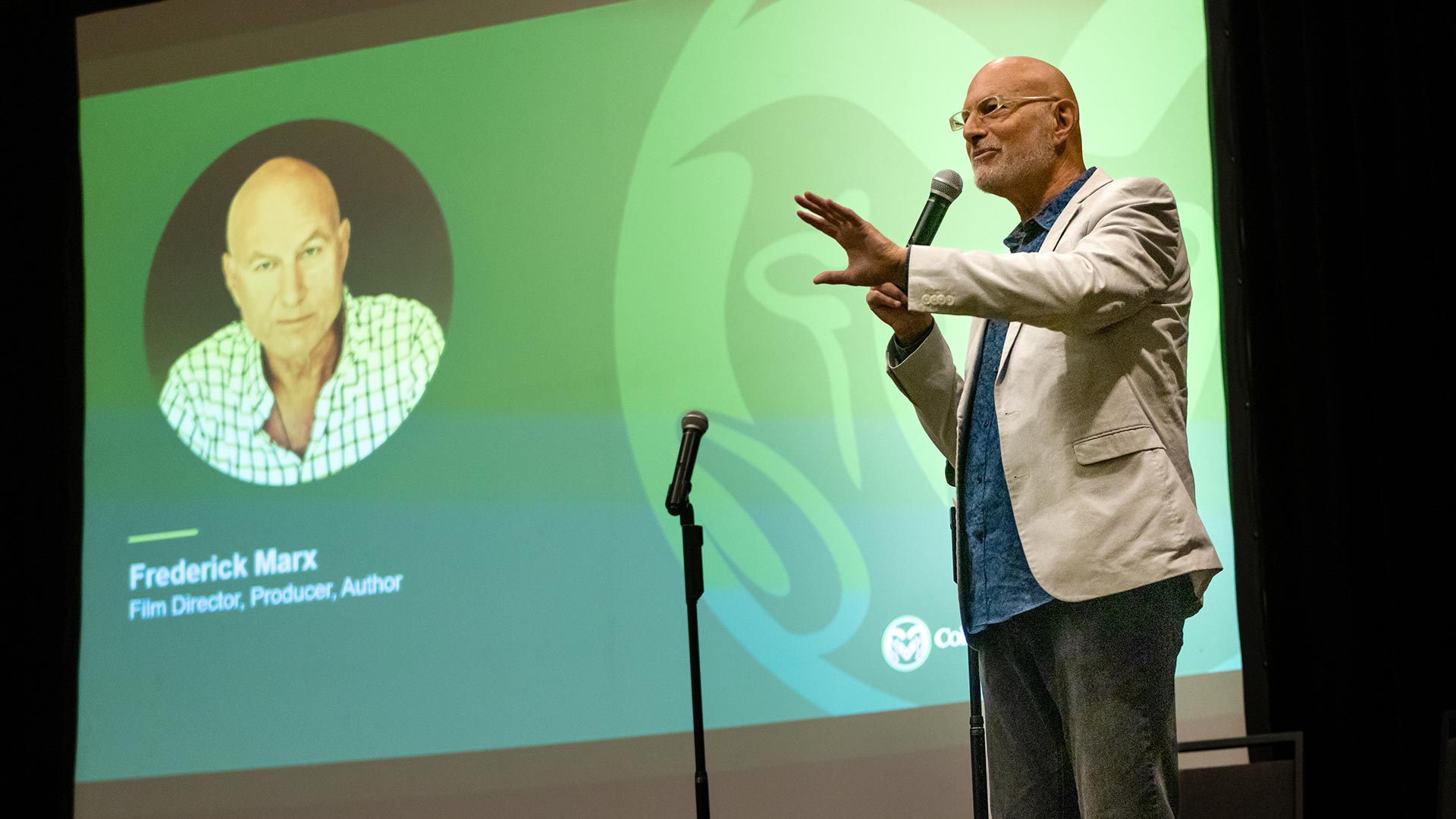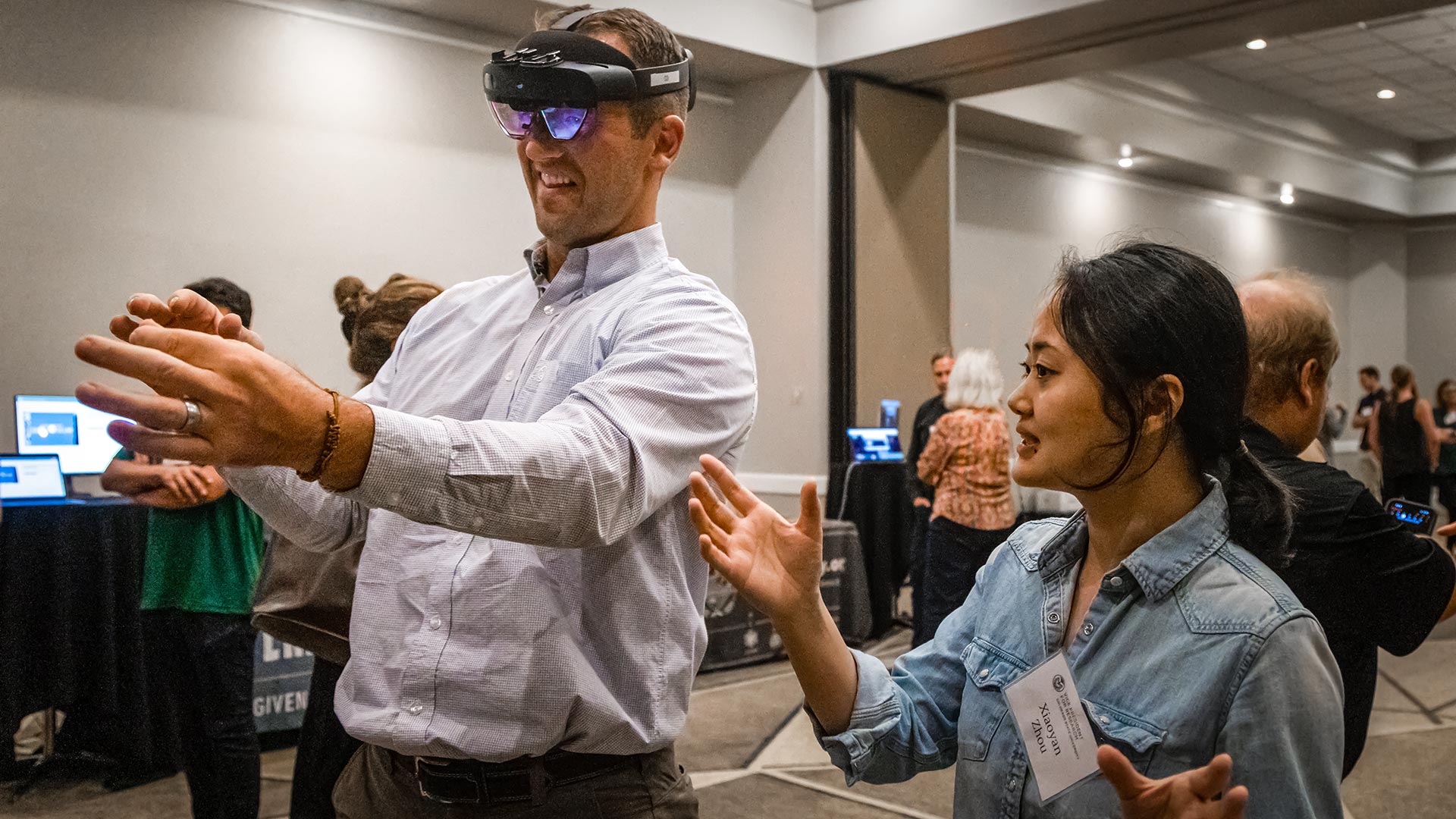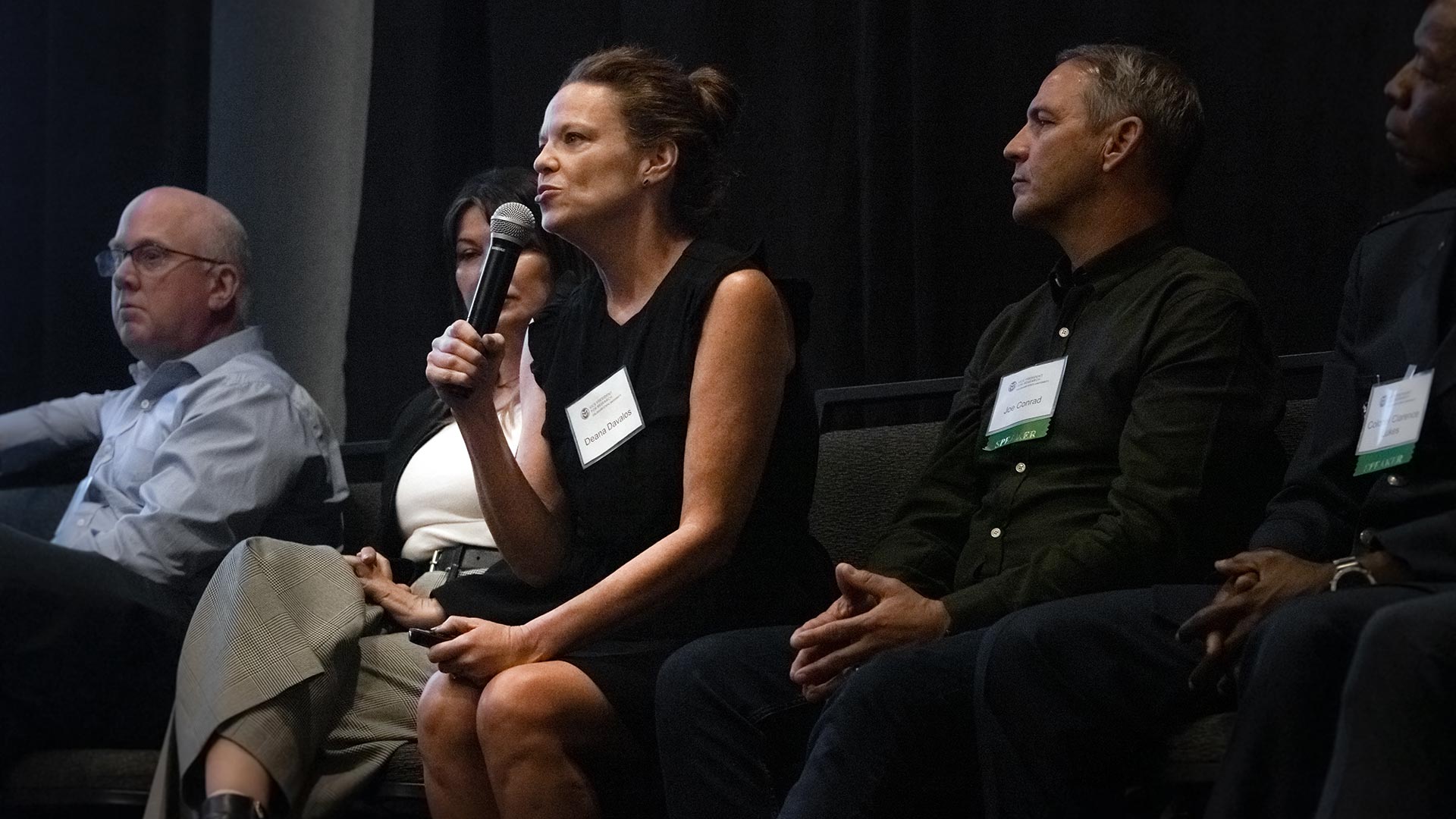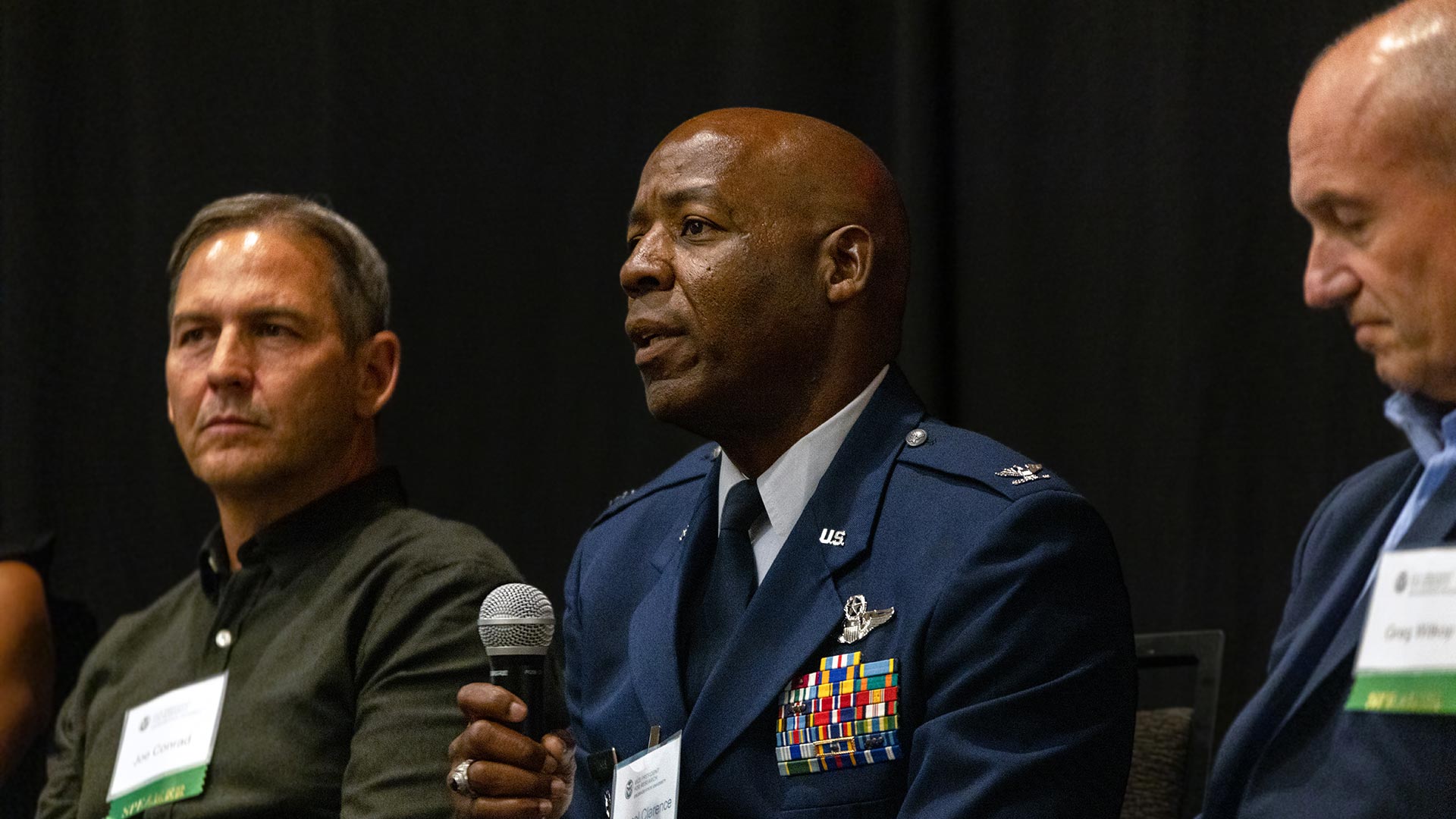
Filmmaker Frederick Marx headlined the “Collaborations in Mental Wellness” event, which took place Aug. 29 at the Hilton in Fort Collins.
Photos by John Cline/Office of the Vice President for Research
In the United States, an epidemic of depression and anxiety as well as rising rates of suicide affect two populations in particular: military veterans and university students.
To explore this topic, Colorado State University convened an array of scientists, filmmakers and technology experts Aug. 29 for a program titled “Collaborations in Mental Wellness,” hosted by the Office of the Vice President for Research. Speakers and panelists shared insights, tools and personal stories in an effort to bring greater awareness to people struggling with their mental health.
The event preceded the two-day DARPA Forward conference, hosted on CSU’s campus by the Defense Advanced Research Projects Agency. “Collaborations in Mental Wellness” included remarks from two DARPA officials as well as technology solutions demonstrations.

The evening included technology demonstrations by CSU researchers and industry partners.
Headlining the mental wellness event was film director Frederick Marx, known for his 1994 documentary “Hoop Dreams,” who has spent the last several years focusing on veterans’ issues and the physical and mental burdens soldiers carry as they enter civilian life. He shared snippets of his five-film series, “Veterans Journey Home,” and screened a short film called “Solutions” that highlights community-based, non-medicinal solutions for veterans returning from war.
“We all bear responsibility for what these men and women go off in our name to do, with honor,” Marx said. “Yet we largely turn our backs when they return.”
Others who shared insights throughout the evening:
- Joe Conrad, CEO and founder of Grit Digital Health and Cactus, who described his experiences creating marketing campaigns focused on mental health, including Man Therapy and You@CSU.
- Scott Rawlings, XR Software and Platform Senior Product Manager at HP, Inc., who demonstrated the work of a small, entrepreneurial team at HP behind a hardware and software system called HP Omnicept. The technology combines virtual and extended reality with bioanalytics and machine learning for new solutions aimed at neurocognitive disorders.
- David MacPhee, professor emeritus of Human Development and Family Studies at CSU, who shared his team’s program evaluation of the You@CSU tool. The software platform was launched in 2016 in an effort to increase CSU students’ health and well-being.
- Deana Davalos, professor of cognitive neuroscience at CSU, who drew connections between university students and military enlistees who are typically 18-25 years old and fall into a unique, post-adolescent life stage with particular mental health challenges.

Panelists included Deana Davalos, professor of cognitive neuroscience at CSU.
- Nanea Reeves, CEO and founder of TRIPP, Inc., whose company offers a virtual reality meditation app that has been clinically proven to reduce stress and help users address mental health concerns.
- Col. Clarence “Coolhand” Lukes, Jr., Vice Commandant of Cadets at the U.S. Air Force Academy, who described the academy’s holistic approach to wellness that combines social, spiritual, physical and mental fitness.
- Dr. Greg Witkop, program manager of the DARPA Defense Sciences Office, a former U.S. Army surgeon who urged the audience to consider the brain an organ that can malfunction, just like any other organ. He also shared advances in neuroimaging that have illuminated how networks in the brain can be damaged by trauma, and how they might be repaired.
- Bruce Draper, CSU professor in computer science and currently program manager of the DARPA Information Innovation Office, who drew attention to the alarming rise in teenage suicide rates, particularly from 2007-2017, compared with the era around the end of World War II. Some of his work at DARPA involves creating programs that enhance mental wellness through artificial intelligence.

Panelist Col. Clarence Lukes, Jr. of the U.S. Air Force described the Air Force Academy’s holistic approaches to wellness.